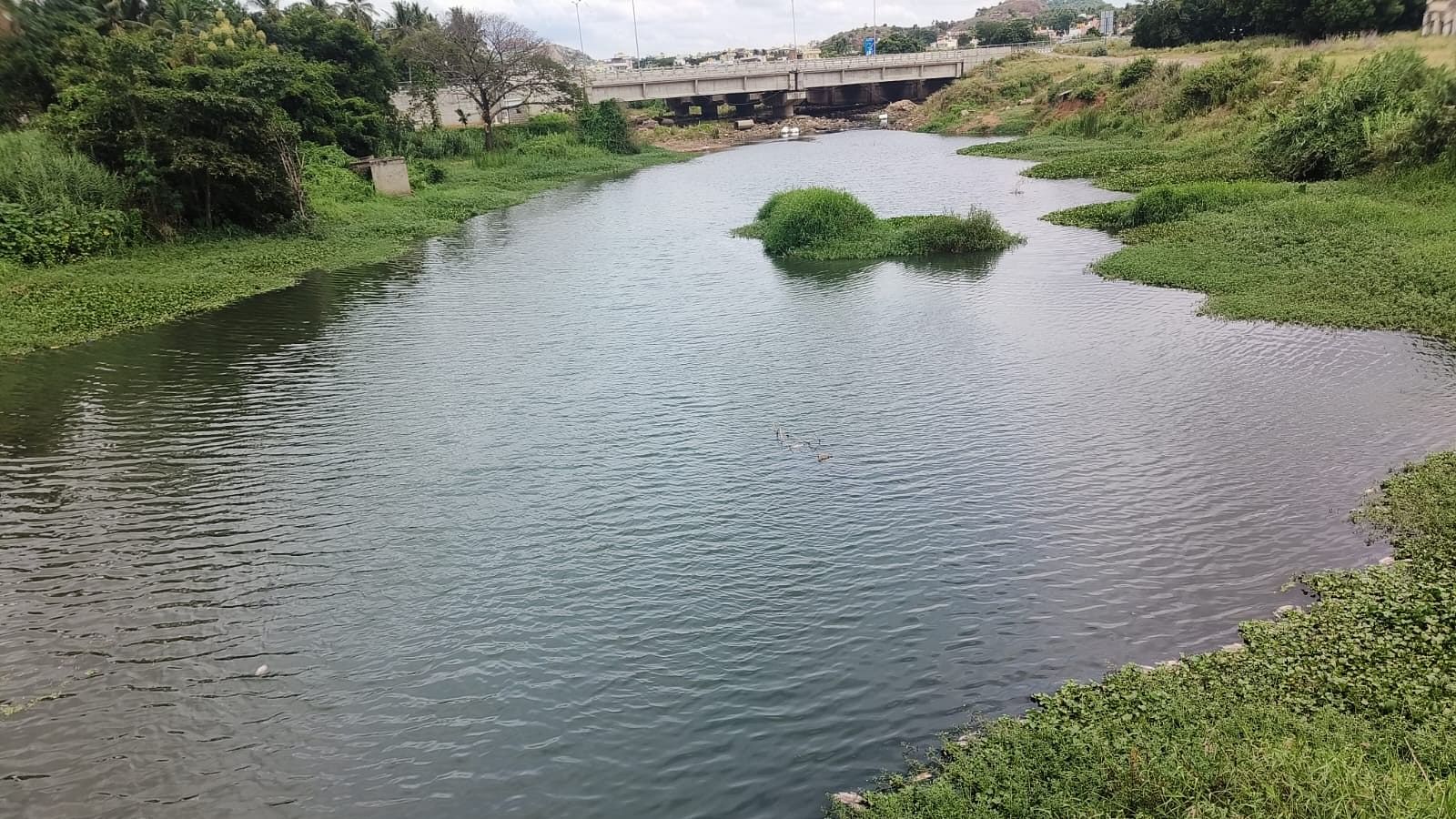
The Arkavathy river originates near Nandi Hills.
Credit: DH File Photo
Bengaluru: Heavy metals and toxic substances, including mercury, banned pesticide DDT, cancer-causing polycyclic aromatic hydrocarbons (PAH), and fluoride, have been found in the Arkavathy River, a vital water source for agriculture and horticulture in Karnataka.
The findings come from recent tests on water and sediment samples collected from the river.
Over two decades after the Karnataka High Court directed the protection of the Arkavathy River, it continues to suffer from severe domestic and industrial pollution. Originating near Nandi Hills, the river remains vulnerable to contamination until it merges with Vrishabhavathi, another heavily polluted waterbody carrying Bengaluru’s sewage.
Alarming crosscurrents
Volunteers from Paani Earth, a Bengaluru-based organisation, collected samples from three sites: upstream and downstream of the Thippagondanahalli (TG Halli) reservoir, and the Dodda Mudavadi bridge, located 10 km upstream of the Arkavathy-Vrishabhavathi confluence.
What is found in the samples?
DDT: Banned in India since 1972, DDT contamination was found at alarming levels, with samples 1 km upstream of the TG Halli reservoir showing DDT concentrations 75 times above the European Union’s water quality standards.
Hexavalent Chromium: This carcinogenic compound, commonly used in metal coating processes, exceeded safety limits by 100 times, as per the Canada Water Quality guidelines.
Mercury: A WHO-designated public health hazard, mercury levels ranged from 16 to 26 times above Canadian safety standards at all three sampling sites.
PAH: These harmful hydrocarbons, which can cause health issues ranging from skin irritation to cancer, were detected in all three samples.
Gaps in water quality monitoring
The sediment and water samples were analysed at the International Centre for Clean Water based at IIT Madras. The findings highlight significant gaps in the current water quality monitoring systems in India.
Madhuri Mandava, co-founder of Paani Earth, emphasised the lack of surface water and sediment standards for key contaminants as a major hurdle. The Karnataka State Pollution Control Board does not monitor heavy metals or PAHs in Arkavathy waters, leaving a critical gap in pollution oversight.
The study also incorporated data from research institutions like the Ashoka Trust for Research in Ecology and Environment. A detailed report, including findings on water quality from the Vrishabhavathi Valley, is expected to be released soon.